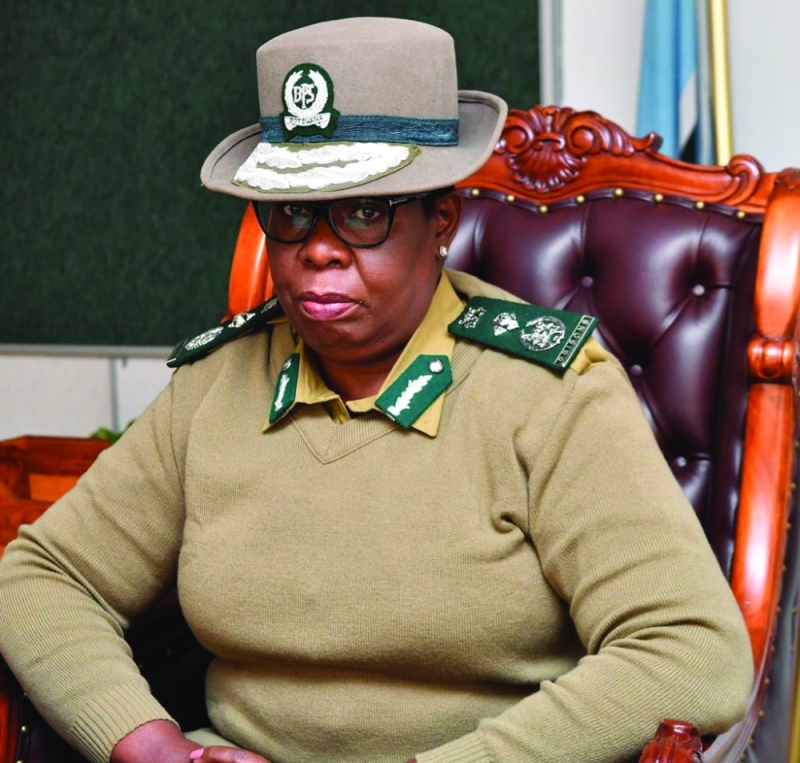Prisons commissioner benchmarks
Lebogang Mosikare | Monday April 11, 2022 06:00


This was revealed by the Minister of Defence, Justice and Security (MDJS), Kagiso Mmusi in a telephone interview with Mmegi on Wednesday. Mmusi told Mmegi that Marathe, the former deputy commissioner of Botswana Police Service (BPS) who also became the first female Commissioner of Prisons, has been out of the country on benchmarking expeditions to her prisons counterparts in the SADC region.
Mmusi said Marathe’s visits to Namibia and Zimbabwe were in line with President Mokgweetsi Masisi’s grand ambition of making Botswana to be self-sufficient in food production. Masisi recently toured Molepolole Prisons Farm where he stated that Botswana’s ambition to achieve food security, improve nutrition and create employment opportunities for the youth and the general population both inside prison custody and outside. “If you recall, we want to increase farming activities in Botswana in order to be self-sufficient in food production.
The President recently went to Molepolole Prisons where he toured its farm. He wants to increase food production within and without our prison facilities and Marathe was also in Namibia and Zimbabwe on a similar mission. We want our prisoners to become productive members of society once they complete their prison terms and to also contribute to our mission of feeding the nation,” said Mmusi.
The minister said a number of prison facilities in Botswana such as Mahalapye Prisons have farms that they want to utilise to grow food for the nation. Botswana currently spends billions annually in importing various food stuffs, mainly from South Africa, a move that critics had long said is counter productive because it is prone to internal shocks such as labour strikes that sporadically affect the farming community in South Africa. In a bid to stimulate local food production, the government placed an embargo on the importation of some horticulture produce such as potatoes early this year.
In response to why the ban was imposed, the Assistant Minister of Agricultural Development and Food Security Molebatsi Molebatsi said although government has not restricted the importation of fruits, there is no evidence that large retailers monopolise the informal sector. He said bringing the act on the importation of horticulture produce was government’s intention to grow the local sector, adding that locals are still lagging behind due to the importation of some produce, which can be produced locally. “Government does not regulate how farmers sell their produce. It is an agreement between farmers and the buyers but then again there is no evidence to suggest there is unfair trading in the selling of horticulture produce.
I recently brought together retailers, informal traders and farmers to discuss a way forward and farmers stated that they need informal traders because they buy their produce with cash,” said Molebatsi. During a familiarisation tour of Molepolole Prisons Farm, Masisi said it is government’s ambition to achieve food security, improve nutrition and create employment opportunities for the youth. “It goes without saying that diversifying agricultural production is key.
I therefore, urge you to explore various sectors of agriculture such as dairy, small stock production, horticulture, and aquaculture in all your prisons country wide.” The President said Prisons Service can play a vital role in milk production and processing to address local milk production, which falls far short of the national demand.
